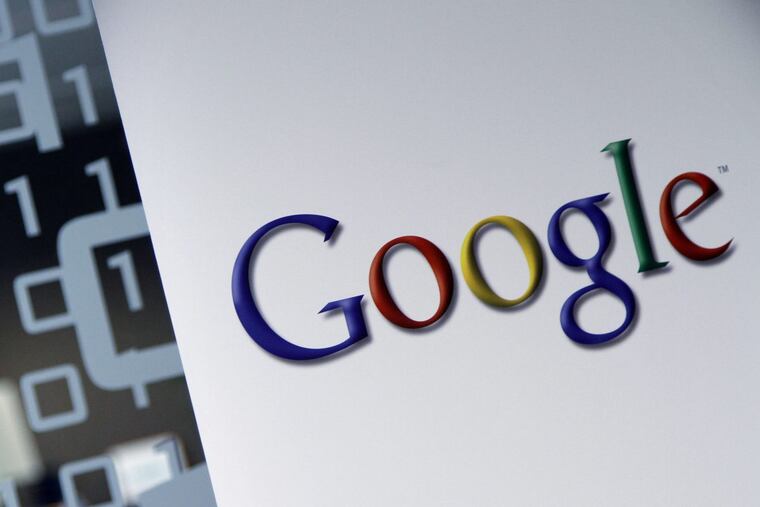Europe vs. Google: Should government make rules for info giants?
When Europe's top competition cop wants to search the Internet privately, she turns to Paoli's own DuckDuckGo.com

Why should Europe think it has a right to boss Google around, telling the second-most-valuable U.S. company what it ought to post on Page 1 of your search results?
Because Google isn't really the free service we have gotten used to thinking it is: Consumers "pay for the service with their data," which Google tracks, tests, sorts, and uses to sell advertising, the European Commission said last week, when it fined Google $2.7 billion. That was for pushing its own Google Shopping out front and squashing competing sites by dumping them onto the lonesome back pages of our search results.
It's as if the Europeans are making the case that Google is not a creator or publisher free to display what it chooses, but is instead what American law calls a "common carrier," like a railroad or a phone company. That means its service is so central to the economy that its operators have no right to sell exclusive service to favored partners at others' expense.
The idea is to prevent big businesses from choking competition and squeezing consumers, the way the powerful old Standard Oil Co. ganged up with the Pennsylvania Railroad to overcharge rival oil shippers, crush rivals, and eventually drive fuel prices and profits way high.
"We respectfully disagree," says Kent Walker, Google's top lawyer. Warehouse and Web services giant Amazon, not Google, is the "formidable competitor" where a majority of Americans go to shop online, he argued in a blog post, "Why don't you go after Amazon?"
Google's targeted search ads "are useful" to stores and consumers since "your feedback tells us they are relevant," Walker went on.
Google, however, doesn't so much ask for our feedback: It studies our online moves, and uses what it learns to sell advertising designed to guide us to places we are more likely to buy things.
It works. As readers moved online, Google got rich stripping ads from print and video publishers. Europe says it is now investigating Google's advertising practices, as well as its Android smartphone software requirements.
But Google didn't squash European competitors by doing anything illegal, Walker argues; We're winning, so we must be better.
Not quite everyone uses Google. When EU Commissioner for Competition Margrethe Vestager wants to search by phone without being tracked, she told Wired magazine this year, she avoids Google and uses DuckDuckGo, an eight-year-old search site founded by Gabriel Weinberg and based on a leafy block across from the Paoli SEPTA-Amtrak station. Run with a skeleton staff, DuckDuckGo positions itself as the anti-Google, pledging not to store your history or track your Web traffic.
But Weinberg, usually happy to promote his cause, told me his company is not commenting on the Google case. DuckDuckGo claimed 16 million searches a day last week, up from 11 million a day during the same week last year, and nine million a day the year before. Google does more than 4 billion a day. But Google in its European Commission defense lists DuckDuckGo and Microsoft's Bing search engine as proof that competitors can survive its dominance.
U.S. regulators have not acted on suggestions that they treat Google search as a common carrier that ought to be equally open to all. The Europe decision might put new pressure on American regulators, but they aren't likely to copy it, says Michael Carrier, an antitrust scholar at Rutgers University Law School in Camden. "Google has a reasonable point" when it says it "quickly displays useful results. And there are many alternatives," starting with Amazon, Carrier added.
The $2.7 billion fine "is immaterial to Google," noted Tara R. Hedlund, senior vice president at Pennsylvania Trust Co. in Radnor, which controls about 6,000 Google shares. But the commission warned that it will start fining Google $250 million a day if it doesn't change its practices.
Meanwhile, DuckDuckGo is joining other Web-dependent firms in mobilizing support for net neutrality, the Federal Communications Commission's Obama-era policy, endangered under President Trump. That policy says the government should guarantee that Comcast and other internet carriers don't favor content in which they have a financial interest — like what Europe busted Google for.
Other Web-dependent companies — including Netflix, Mozilla, Twitter, Soundcloud, Medium, Reditt, and Amazon — have joined with Common Cause, the ACLU, and the American Library Association in declaring July 12 an "Internet-Wide Day of Action to Save Net Neutrality."
Their advocacy group "Fight for the Future" promises "prominent messages on their homepages" and an online messaging campaign urging the FCC to reverse proposals to "slash Title II, the legal framework for net neutrality rules," a deregulation move that has been broadly favored by Comcast and other big internet providers.